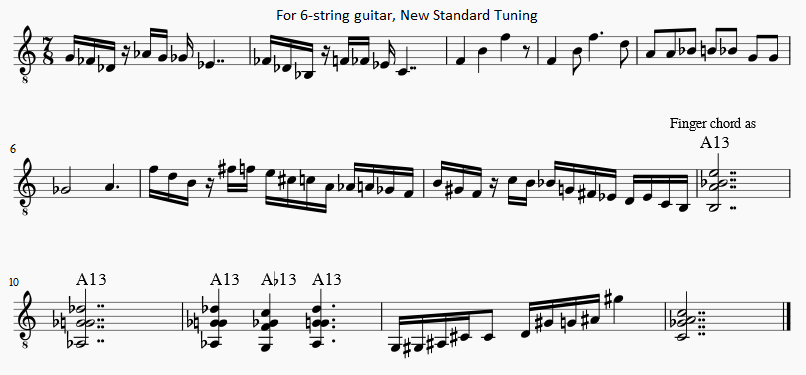Is there a term for melodic improvisation where only specific intervals are taken into consideration?
As an example, Beginning on C, the player then has the option of moving either up or down, (Or repeating the same note) but only in the intervals of:
Min 2nd (C#/Db), Min 3rd (D#/Eb), Aug 4th/Dim 5th (F#/Gb), Min 6th (G#/Ab), Min 7th (A#/Bb), and into the next octave. (Min 2nd + Octave). Once the player decides on an interval, and plays it, he or she then selects the next interval from the same set.
If the second notes were F#/Gb, the available notes would then be: G, A, C, D, and E.
Below is a short passage composed under the stipulations above, as an illustration.

No key was applied, because I don't have the knowledge of which key would clean up the notation most efficiently.
